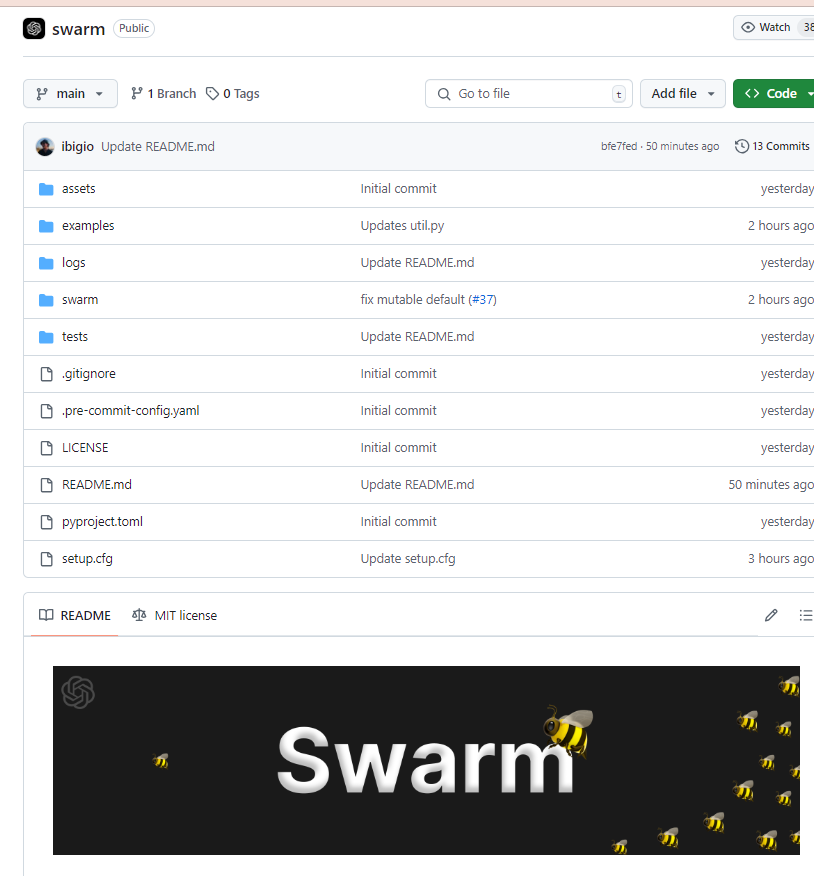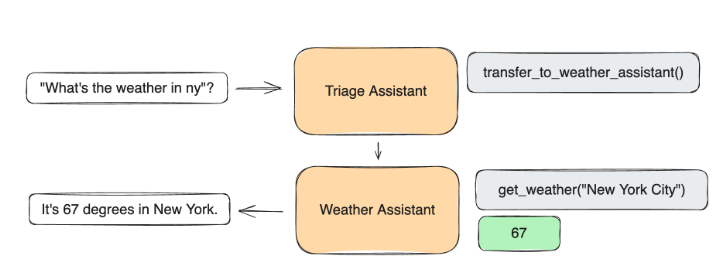The editor of Downcodes will take you to learn about Swarm, the latest experimental framework launched by OpenAI! It is a lightweight toolset designed for building, orchestrating and deploying multi-agent systems, enabling multiple AI agents to work together to efficiently complete complex tasks. The core concepts of the Swarm framework are agents and handoffs, which allow AI agents to work together like a team and switch flexibly to achieve efficient task processing and a full range of service experiences. This article will delve into the features, application scenarios, and revolutionary impact of the Swarm framework on the AI field.
Swarm, the latest experimental framework launched by the OpenAI Solutions team, is bringing new possibilities to the field of AI. This lightweight toolset for building, orchestrating, and deploying multi-agent systems is changing the way we handle complex tasks.
The core idea of the Swarm framework is to allow multiple AI agents to work together, each agent having its specific tasks and capabilities. Through carefully designed collaboration mechanisms, these AI agents can work together like an efficient team to complete complex workflows.

This is an intelligent customer service system: the receptionist AI is responsible for initially understanding customer needs, the technical support AI handles professional issues, and the after-sales AI focuses on returns and exchanges. Swarm allows these AI agents to cooperate seamlessly and switch flexibly according to the situation, providing customers with a comprehensive service experience.
The two core concepts of the Swarm framework - Agents and Handoffs, provide a solid foundation for multi-agent collaboration. Each agent is like a professional AI employee, and the handover mechanism ensures that tasks can be smoothly transferred between different agents to achieve efficient execution of complex processes.

This Python-based framework relies on OpenAI's Chat Completions API, which not only supports flexible handover between agents, but also allows developers to customize agent behavior and call specific functions to perform tasks. Its stateless design provides convenience for large-scale task processing and distributed system applications.
Swarm has a wide range of application scenarios, ranging from multi-step task processing to complex workflow management, and can leverage its unique advantages. Whether it is customer service, data analysis or content creation, Swarm can effectively improve the efficiency and quality of task processing through multi-agent collaboration.
For developers, Swarm provides great flexibility and scalability. By defining the behaviors and capabilities of different agents, developers can build powerful and collaborative AI systems based on actual needs.
With the rapid development of AI technology, multi-agent collaboration frameworks like Swarm have undoubtedly opened a new door for us. It not only improves the ability of AI systems to handle complex tasks, but also expands new boundaries for AI applications. In the future, we have reason to expect that Swarm can exert its unique charm in more fields and bring revolutionary changes to the practical application of AI.
Project address: https://github.com/openai/swarm
All in all, the Swarm framework provides an efficient and flexible solution for multi-agent AI systems. Its broad application prospects and powerful functions make it a rising star in the field of AI. The editor of Downcodes looks forward to Swarm bringing more surprising applications and breakthroughs in the future!